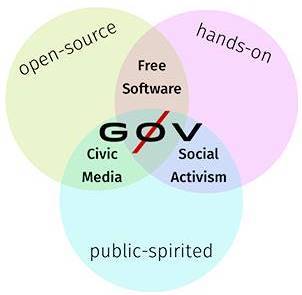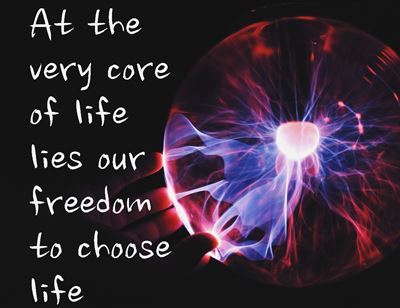Jeremie Averous's Blog, page 17
February 18, 2021
How Facebook Handling of Political Ads Must Be Better Scrutinized
We can observe that Facebook is increasingly under pressure about its political impact. This interesting Mashable article ‘Facebook wants NYU researchers to stop sharing the political ad data it keeps secret‘ provides insights about how secret the platform is about how it is handling political ads.

Apparently the fact that New York University is conducting research and publishing key statistics on Facebook political ads is not agreeable to Facebook itself who probably would prefer to wash its laundry internally.
“Not only do you see how much money each campaign is spending; you also get a breakdown of topics the ads for each candidate cover, the dollar amount going into each one, and the specifics of how ads are targeted toward each candidate’s hoped-for voters. It’s not necessarily comprehensive information, since it depends on how much data volunteers are able to gather. But it’s more transparency than Facebook has provided on the political ad spending hosted by the platform.”
Apparently such transparency is a problem to the network, when it should certainly be public knowledge as a way to check that elections are not unduly influenced.
The reticence of Facebook to encourage such research is another clue that something needs to be changed in the way it tends to influence users.
The post How Facebook Handling of Political Ads Must Be Better Scrutinized first appeared on The Fourth Revolution Blog.
February 16, 2021
How Internet Can Also Be Used to Foster Democracy
This worthwhile Guardian article ‘How Taiwan’s ‘civic hackers’ helped find a new way to run the country‘ describes the important gOv experiment carried out there. Using a platform focused on areas of agreement rather than tending to split communities around disagreement it seems that they have built a platform that gives hope that internet can be used to really foster democracy (g0v.asia).

Of course this experiment could only come from Taiwan where the need for democracy is particularly essential due to the ambitions of its mainland neighbor.
The Guardian article explains how this started in 2014, and how important it is now in the local political landscape, with even a minister stemming from this movement.
Interestingly, a cornerstone of the approach is radical transparency about everything in the public sphere – making information and data much more accessible to the citizens.
But the most interesting I find is that “the discussants found themselves in an entirely new kind of online space – exactly the opposite of a social media platform that encourages strife“. “As people expressed their views, rather than serving up the comments that were the most divisive, it gave the most visibility to those finding consensus – consensus across not just their own little huddle of ideological fellow-travellers, but the other huddles, too. Divisive statements, trolling, provocation – you simply couldn’t see these.“
So it quite possible to use Internet in a way that fosters agreement instead of the traditional social networks we have grown used to, that do rather the contrary. This is quite an important message, and I am looking forward to this type of platforms to become increasingly widespread.
The post How Internet Can Also Be Used to Foster Democracy first appeared on The Fourth Revolution Blog.
February 13, 2021
How To Address Your ‘Freedom in the Mountain’ Yearning
Escaping from the turbulent city life to rebuild oneself in a remote, quiet corner in the countryside or in the middle of the mountains is a widespread aspiration, as demonstrated by its popularity in works of fiction in books and on the screen. I must confess I do suffer from it and am hoping to follow this wish as soon as possible, and hopefully quite sooner than retirement. Luckily in this post ‘Find Freedom of the Mountain in Everything You Do‘, Leo Babauta explores how to address this longing at your current home. It’s all about your feeling of freedom.

“What we (and many others) crave is not really the mountain, but freedom. Simplicity and space and the liberating feeling of freedom. We think if we simplify and let everything go and get our lives free of the burdens, we’ll feel free. But what I’ve found is that getting rid of everything and living a simple life doesn’t necessarily give you that freedom.”
“A teacher a few years ago gifted me with a liberating idea: find the freedom in your current life, without having to change a thing.” There is more detail in the post about to achieve this state of freedom in your current situation without moving to this remote un-connected location of your dreams.
Although I believe this post only addresses one side of the yearning (the other side being to live at a slower pace, in a less crowded location and without the traffic jams and dense public transportation), it provides quite an interesting insight into this widespread yearning (I do not agree with the term fantasy used by Leo Babauta).
Anyway it is worth remembering that we can do much to increase our sense of freedom where we are right now geographically or otherwise, and that we should focus on developing it.
The post How To Address Your ‘Freedom in the Mountain’ Yearning first appeared on The Fourth Revolution Blog.
February 11, 2021
How Begpackers are a Reflection of the Free Culture
This Quartz post ‘The ‘begpacker’ phenomenon shows how fake poverty has become a status symbol‘ addresses the issue of the ‘begpackers’ – typically western young people who travel far and beg their money for travel. I have seen them in Asia as quite a recent trend, begging in very public and central locations, and this is strongly resented by inhabitants of many poorer countries. I believe this is an effect of social media and the habit to get a lot for free.

“In the age of social media, crowdfunding, and hashtags, the dream of free travel has morphed once again, giving us the phenomenon of #begpackers: People who travel backpacker-style on a beggar’s budget, asking for contributions, freebies, and handouts from locals or fellow travelers to as they go.”
While travelling on a shoestring is definitely not new (that’s the motto of the famous Lonely Planet guides), visibly begging in public spaces is. Before, people either depended on their own limited resources, or took some jobs to get more.
The article expands on the fact that begging is a status symbol in the age of social networks. I am not so sure. I would tend to believe that we are getting used to having access to many services for free (in exchange for our data of course) and that as a consequence we don’t necessarily understand that it does not apply fully to the real world, in particular far from home.
Let’s remember that having access to so much for free is not actually for free, and that there are ethical boundaries that should not be crossed in relying on others to get along for free.
The post How Begpackers are a Reflection of the Free Culture first appeared on The Fourth Revolution Blog.
February 9, 2021
How Office Space Remains Essential
There are lots of opinions on how office space will evolve as a result of the Covid-19 crisis (which is probably an accelerator of trends more than a trigger). In this interesting post ‘The Case For Space (Office Space, That Is)…‘ Mich Joel, who worked mainly in the advertising industry, explains why office space is definitely not obsolete.

In creative endeavors that require creative teamwork, nothing will replace working together physically. And moreover, “In the agency world, your office is your culture.” Building a strong, differentiated culture requires physical contact.
“Offices are where innovation happens. Offices are where we socialize to build better work. Offices are where new ideas get sparked. Offices are where we learn more about ourselves by watching others. Office are where culture is born and thrives.”
Future offices may be different, and some professions may more decidedly into more virtual offices, but nothing will replace physical offices for many professions in particular for creativity or where teamwork is essential (engineering, projects for example). Virtual work cannot emulate the informal interactions of the physical office and it will remain essential several days a week. It is extremely visible when it comes to the difficulty of onboarding newcomers since the start of confinement.
The office space is not obsolete or dead. It may need to evolve, but remains essential to value and culture creation.
The post How Office Space Remains Essential first appeared on The Fourth Revolution Blog.
February 6, 2021
How Building Companies Is Still Needed Beyond Freelancer Networks
In today’s collaborative economy, there is a real question in certain service industries of the interest of building corporations instead of just relying on a network of freelancers. This post by Valeria Maltoni ‘Why Build a Company‘ sheds some light on this important question: in fact, only established companies can act in a longer timescale, and this remains a social requirement.

Corporations are of course needed when substantial capital investment is required like in the heavy or light industry of the Industrial Age; but in the services economy where capital investment is minimal, the question remains open and controversial. I know quite a number of organisations that rely mainly on animating freelancers to deliver services. On the other hand, I have build my own service companies as being mainly companies with partners and employees, and if we do use freelancers, it is only sparingly to complement rare competencies.
Valeria Maltoni makes an excellent point about timeframes. “The destiny of our species depends on our ability to survive on different time scales.” And companies have a different scale (years) compared to freelancers (days, months). Their project is to developing something over years and even sometimes generations.
She quotes “Corporations are entities that can transform and dissipate socially useful energy throughout society“. “Building a company is creating the vessel to hold value“, and this value can have many dimensions beyond the financial. In building my companies I certainly take a longer time view to deliver some kind of long standing value to the world.
Even in the Collaborative Age, the core of corporations to develop and keep value on the longer term will remain required. There may be more freelancers and people flowing from project to project, but some longer-term value receptacles must remain.
The post How Building Companies Is Still Needed Beyond Freelancer Networks first appeared on The Fourth Revolution Blog.
February 4, 2021
How to Detect Mistakes in Statistical Analysis
This extremely useful paper reminds us of common statistical mistakes made in articles and papers: ‘Ten common statistical mistakes to watch out for when writing or reviewing a manuscript‘.

Those are:
absence of an adequate control condition or groupinterpreting comparisons between two effects without directly comparing them as a full groupinflating the number of units of analysisspurious correlations (example single weird value)using too small samplescircular analysis (retrospectively selecting features of the data to characterize the dependent variables, resulting in a distortion of the resulting statistical test)too much flexibility of analysisfailure to correct for multiple comparisons in exploratory analysis)over-interpreting non-significant resultsconfusing correlation and causationQuite a useful checklist to use the next time you review a paper based on statistical analysis!
The post How to Detect Mistakes in Statistical Analysis first appeared on The Fourth Revolution Blog.
February 2, 2021
How the Gap Created by IT Proficiency Will Increase
In the debate about how future employment will look like, this The Conversation post takes a clear side: ‘Don’t fear a ‘robot apocalypse’ – tomorrow’s digital jobs will be more satisfying and higher-paid‘.

Based on research, the authors have found that “workers in occupations that rank higher in IT intensity earn more than demographically similar peers in other occupations – and that this earnings gap has been growing.” – and that the wage gap is more related to IT intensity than actual study level. Also, the authors have found that “jobs that require greater interaction with technology tended to score higher in quality, particularly in terms of measures like career advancement.”
This paper seems to me quite biased and carry actually the inverse conclusion of its title. One can expect that of course, people will advanced IT skills will be quite well compensated and will have high job satisfaction in a more automated future. But this only serves to prove that the gap between this new elite and the rest of the population will increase. It does not address the fate of the employees which job can be easily automated and delegated to robots, or who do not have the right IT proficiency.
Increasing the IT proficiency across the young generation is certainly a priority. Making sure IA does not upend our society is another that needs to be deeply understood.
The post How the Gap Created by IT Proficiency Will Increase first appeared on The Fourth Revolution Blog.
January 31, 2021
How We Should Commit to Liking What We Do
Seth Godin in this blog post – that is straight to the point – ‘We like what we choose’ explains how most of us and most personal development gurus have it backwards. We don’t choose what we like, we like what we choose.

The post refers to scientific research on toddlers quoted in Science daily ‘Babies’ random choices become their preferences‘: “People assume they choose things that they like. But research suggests that’s sometimes backwards: We like things because we choose them. And, we dislike things that we don’t choose.”
In general, we may or may not have much choice in where we grow up, live or what we do. The thing is, it may not be worthwhile exhausting ourselves to find what we’d like to do. It is much better and apparently much more satisfying to just make sure we like what we do.
And anyway, at some stage, even if that was between two sub-optimal alternatives, we have made choices and this should make us prefer what we have chosen.
So, let’s focus on liking, developing and making the best of what we do, because at some stage we have chosen to do it.
The post How We Should Commit to Liking What We Do first appeared on The Fourth Revolution Blog.
January 28, 2021
How is USA Is Growing Different From the Rest of the Western World
The infographics of this excellent New York Times opinion ‘The U.S. Is Lagging Behind Many Rich Countries. These Charts Show Why.‘ are quite enlightening about some trends that make the USA stand apart from the rest of the developed world.

The US appear to be very specific on such aspects as life expectancy, ratio of added value going to workers vs CEOs, healthcare expenditure (the double in terms of share of GDP!), incarceration rate (more than double again, even 3x or 4x!), or income inequality.
It seems quite clear that there is apparently something broken in the way the US socio-economics work. The question is out whether this situation is actually sustainable even if the US economy is quite self-sustaining. I am convinced however that despite the powerful US softpower, we need to be careful when we are importing in our societies typical US issues, which are not necessarily valid in our societies.
The USA is clearly an outlier in may socio-economic aspects. It is a very large outlier of course, but let’s not necessarily make it a model or try to adopt its solutions, which may not be adequate for the rest of the world.
The post How is USA Is Growing Different From the Rest of the Western World first appeared on The Fourth Revolution Blog.



